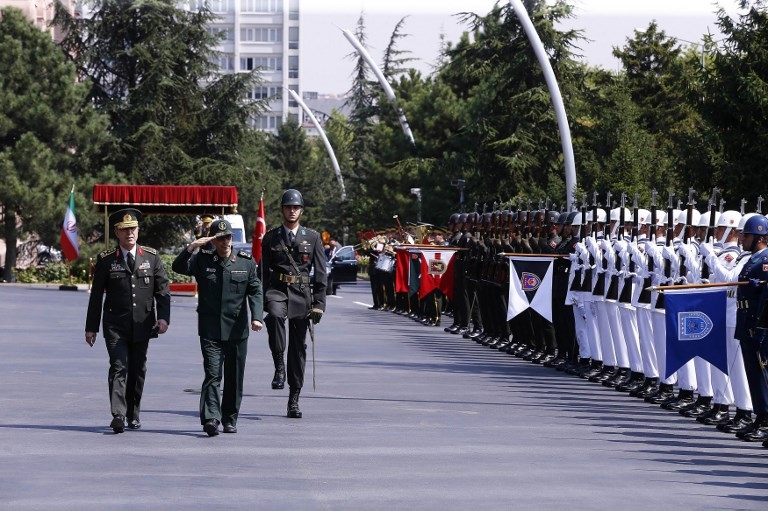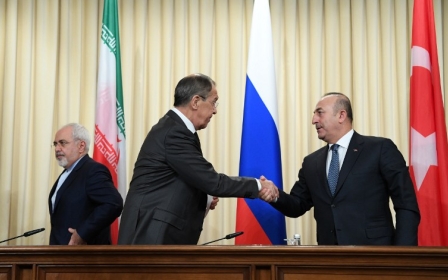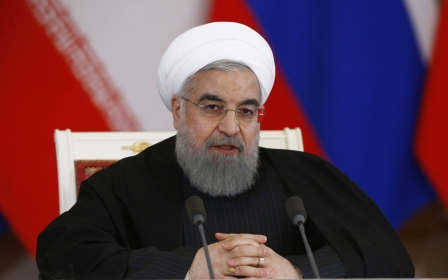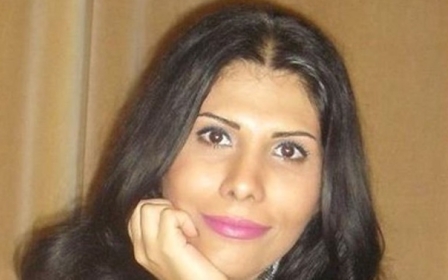Iran chief of staff in Turkey for talks on Syria and Iraq

Iran's military chief of staff arrived in Ankara on Tuesday for "unprecedented" talks with Turkey's leadership reportedly aimed at narrowing differences on the Syria crisis and coordinating policy on Iraq.
General Mohammad Hossein Bagheri is due to meet Defence Minister Nurettin Canikli and President Recep Tayyip Erdogan during his three-day visit.
He kicked off the visit by meeting his Turkish counterpart, Hulusi Akar, the state-run Anadolu news agency said.
Pro-government Turkish newspaper Daily Sabah quoted diplomatic sources as saying the visit was a "milestone" and would not have been possible unless both sides were willing to make deals on both Syria and Iraq.
Iran's official IRNA news agency meanwhile described the visit as "unprecedented" in the history of bilateral relations.
"This trip was necessary for better consultation and cooperation on various military and regional issues," Bagheri said in a statement to state Iranian broadcaster IRIB, citing border security and the fight against terror.
Yet relations between overwhelmingly Sunni Muslim Turkey, a secular state, and the mainly Shia Islamic Republic of Iran have on occasion been tense in the last years.
Erdogan has sometimes lashed out at the rise of "Persian nationalism" in the region, especially in Iraq.
Turkey and Iran lie on opposing sides of the Syrian conflict, with Erdogan seeking the toppling of President Bashar al-Assad to end the war and Tehran, along with Moscow, his key remaining ally and backer.
But Turkey and Russia have been cooperating more over Syria in recent months, helping to extract civilians from Aleppo and then co-sponsoring peace talks in the Kazakh capital Astana.
But with its anti-Assad rhetoric toned down, Ankara now appears especially concerned about the presence of the Kurdish People's Protection Units (YPG) in the border area.
Although an ally of the United States, the YPG is considered by Turkey as terror group and the Syrian branch of the Kurdistan Workers' Party (PKK) which has waged a deadly three-decade insurgency in the Turkish southeast.
The rise of militants in the province of Idlib, neighbouring Turkey, has also alarmed Ankara, Moscow and Tehran.
Both Turkey and Iran have substantial Kurdish minorities and they vehemently oppose a plan by Iraq's autonomous Kurdish region to organise a vote on independence later this year.
Turkey has begun building a "security wall" along part of its border with Iran, regional officials said this month, along the lines of a similar barrier on the Syrian border.
New MEE newsletter: Jerusalem Dispatch
Sign up to get the latest insights and analysis on Israel-Palestine, alongside Turkey Unpacked and other MEE newsletters
Middle East Eye delivers independent and unrivalled coverage and analysis of the Middle East, North Africa and beyond. To learn more about republishing this content and the associated fees, please fill out this form. More about MEE can be found here.




